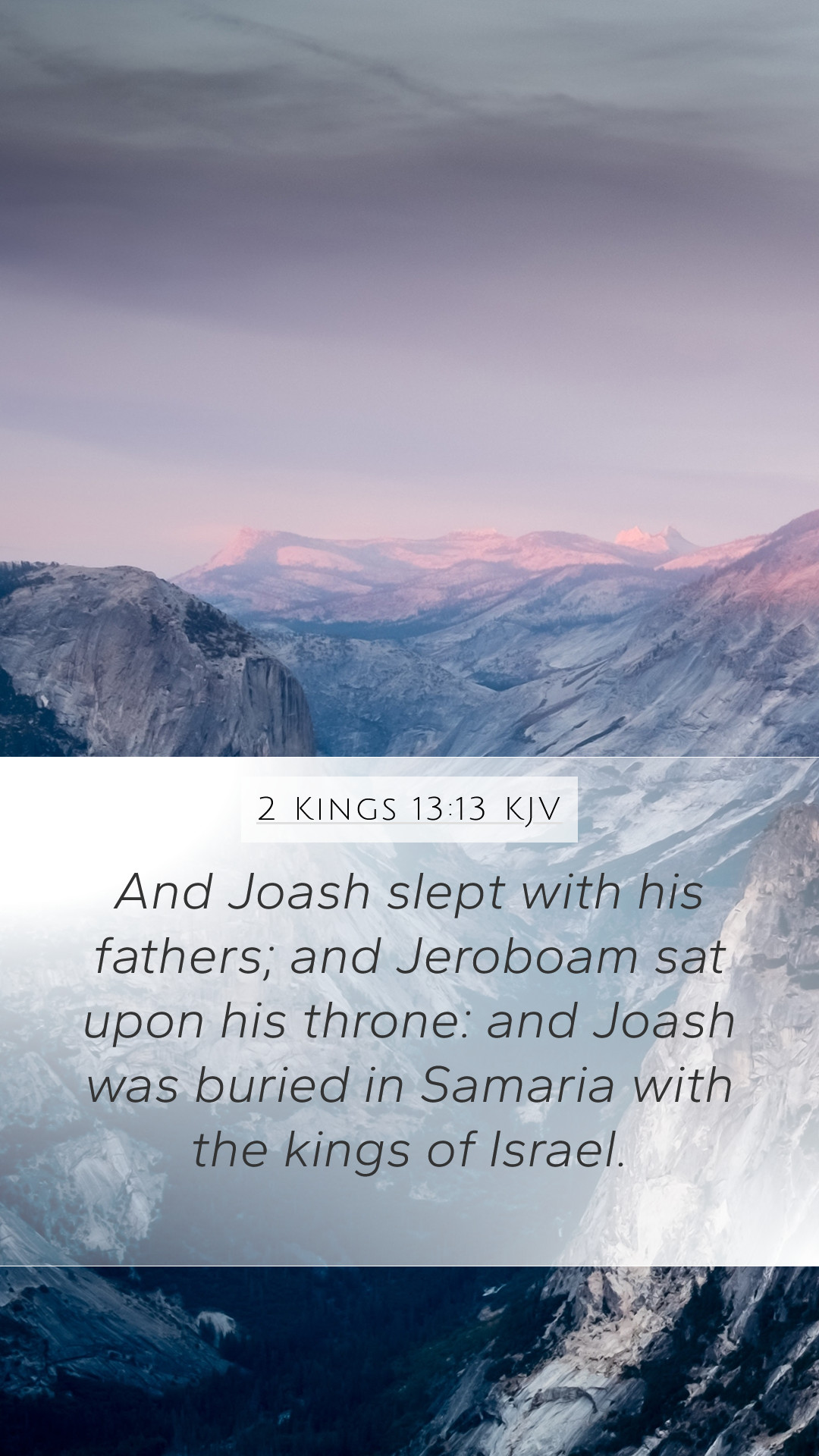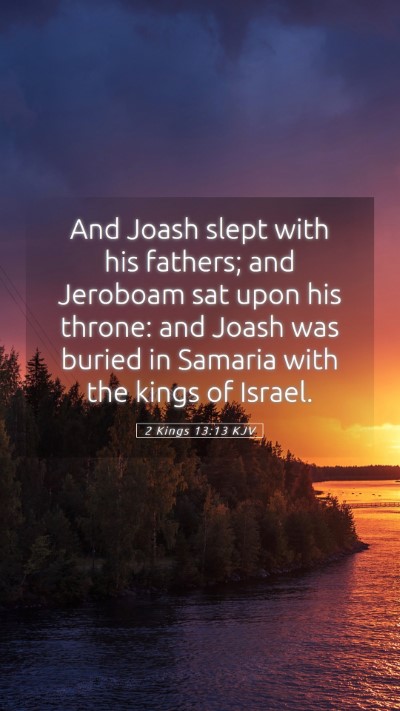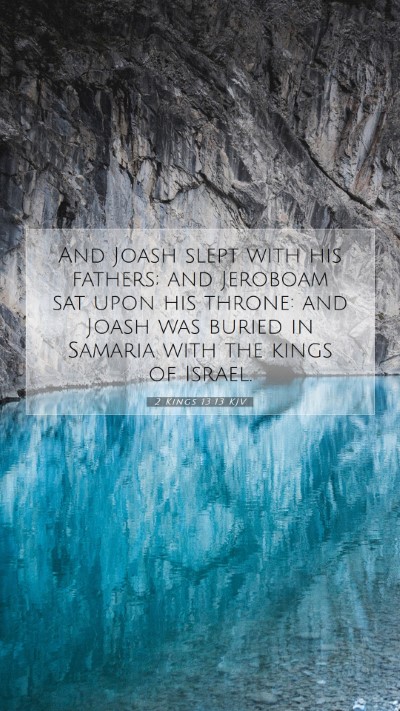Bible Verse Explanation: 2 Kings 13:13
Bible Verse: "And Jehoash slept with his fathers; and they buried him in Samaria: and Jeroboam his son reigned in his stead."
Overview
This verse serves as a transitional statement in the narrative of 2 Kings, marking the end of King Jehoash's reign and the beginning of Jeroboam's rule. It is essential to consider the historical and spiritual context in which these events unfolded. This commentary aims to provide a comprehensive understanding of the significance of this verse through the lens of public domain commentaries.
Interpretation and Meaning
The death of Jehoash and the succession of his son Jeroboam symbolically reflect the continuity of leadership in Israel's monarchy, as well as the ongoing cycle of sin and judgment that characterizes the narrative of the kings of Israel.
Historical Context
According to Matthew Henry, the historical backdrop to this verse involves periods of turmoil and conflict within Israel. The reigns of the Israelite kings often ended in a pattern of idolatry and disobedience to God, leading to divine judgment. The reference to Jehoash's burial in Samaria indicates not just his death but also his legacy and the political stability of his lineage, despite the spiritual failures of the time.
Commentary Insights
- Matthew Henry's Commentary: He emphasizes the necessity of kings adhering to God's commandments. Jehoash's life had moments of compliance yet ultimately concluded with the same cycle of sin that plagued his predecessors.
- Albert Barnes' Notes: Barnes provides an analysis of the implications of Jeroboam's ascent. His reign signifies not only a continuation of the political dynasty but also reinforces the idea that the kingdom was still firmly entrenched in its course of rebellion against God.
- Adam Clarke's Commentary: Clarke elaborates on the physical act of burial, which represents a commonality shared by all rulers, demonstrating human mortality despite their earthly power. This humbling notion ties into the larger themes of spiritual accountability.
Spiritual Themes
There are a few vital themes extracted from 2 Kings 13:13, each serving to underscore the book's overarching messages about leadership, accountability, and divine sovereignty.
- The Cycle of Kings: Each king's life and reign, whether righteous or wicked, contribute to the larger narrative of Israel's history.
- God’s Sovereignty: The succession from Jehoash to Jeroboam, despite the latter's known idolatrous leanings, illustrates God’s control over the fates of nations and leaders.
- The Legacy of Leadership: Jehoash’s reign serves both as a warning and a lesson for future generations about the consequences of turning away from God's precepts.
Cross References
- 2 Kings 12:1-3 - Details of Jehoash's reign and actions.
- 2 Kings 14:16 - Transition relating to Jeroboam II’s rise.
- 1 Kings 12:24 - Historical context of Jeroboam's own reign.
Conclusion
2 Kings 13:13 encapsulates the cyclical nature of the Israelite monarchy, the persistent theme of sin, and the sovereignty of God in guiding the destinies of nations. Understanding this verse through the lens of various commentaries allows for a more profound Bible verse understanding and appreciation of the historical and theological implications it carries. As individuals study this verse, they can reflect on the importance of leadership integrity, the consequences of choices, and the ever-present sovereignty of God in history.
For Further Study
Those interested in Bible study insights and deepening their understanding of similar scripture can explore additional study resources and guides concerning the kings of Israel, the significance of leadership, and God's covenant with His people.


